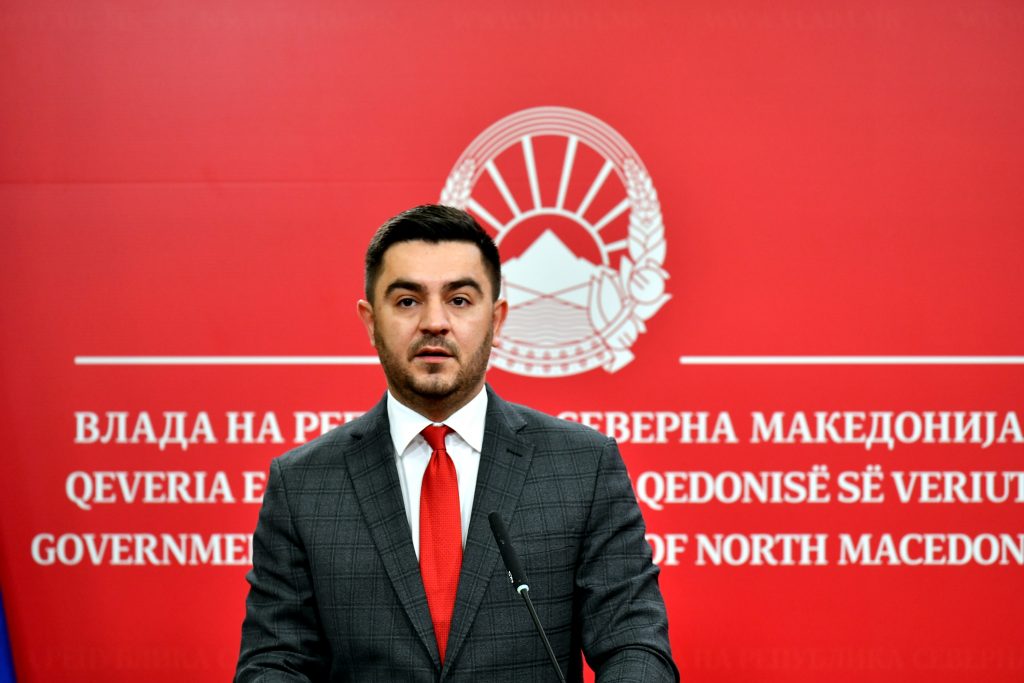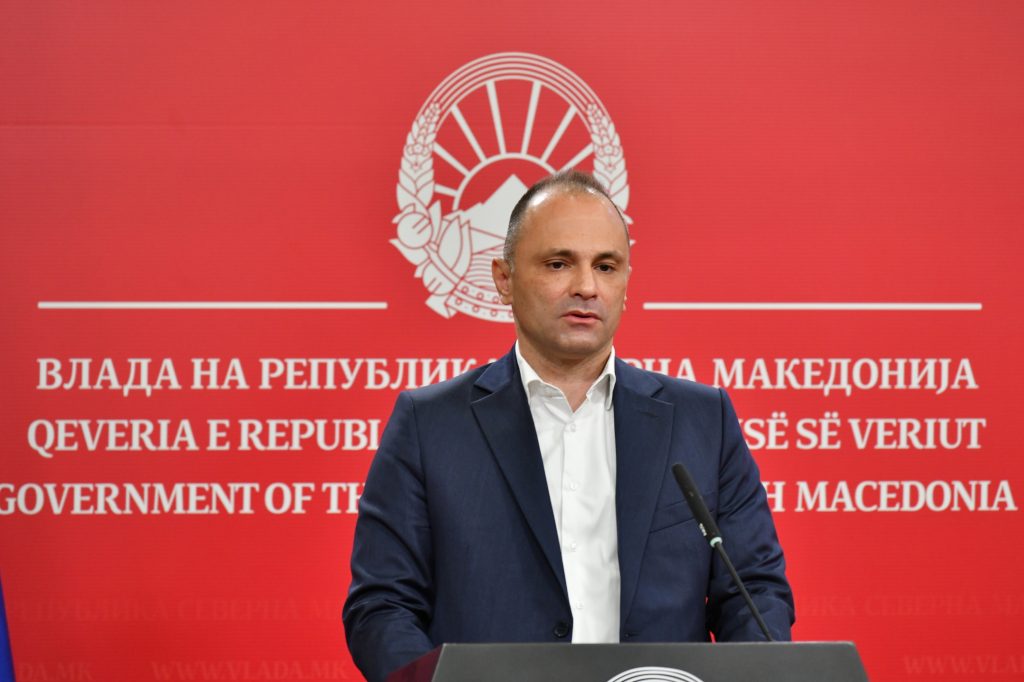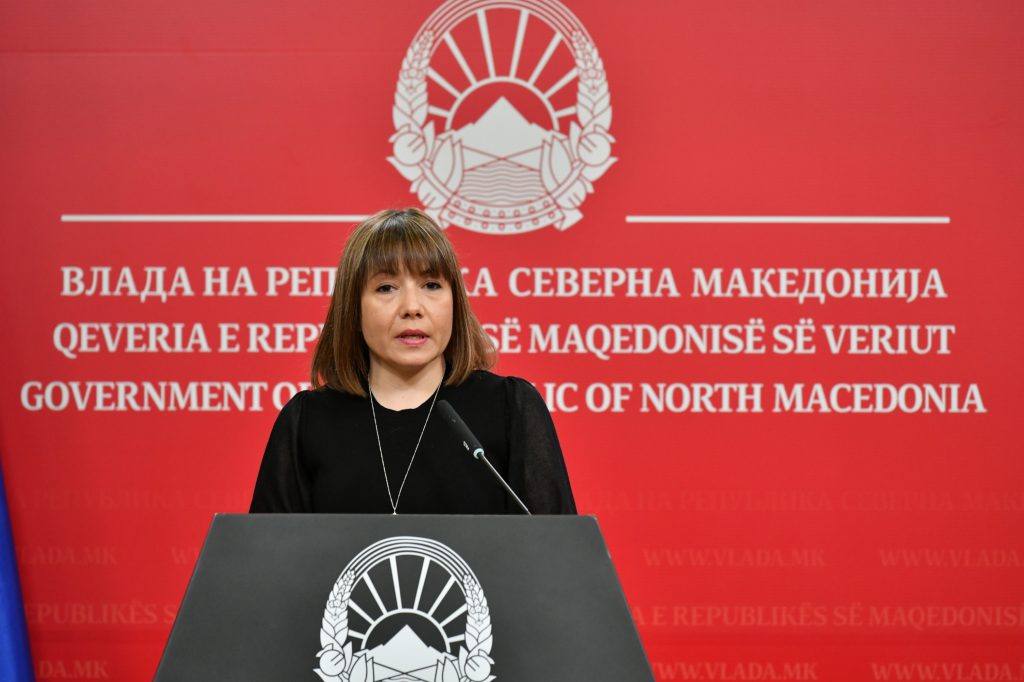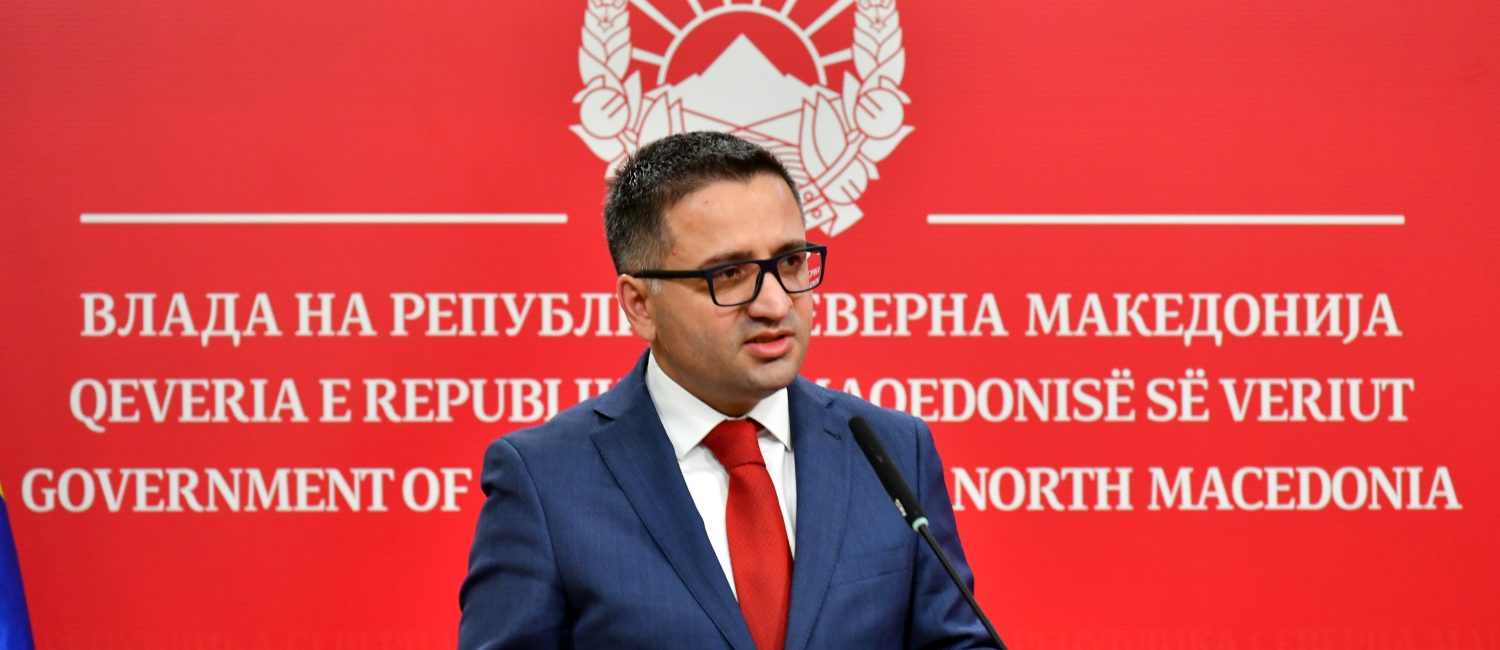7th May 2021, Skopje – Within the WB Country Partnership Framework, EUR 46.5 million is provided for implementation of the Public Sector Energy Efficiency Project and the Primary Education Improvement Project, which were promoted today by the Minister of Finance, Fatmir Besimi, World Bank Country Manager, Massimiliano Paolucci, Minister of Economy, Kreshnik Bekteshi, Minister of Health, Venko Filipche, and Minister of Education and Science, Mila Carovska, with the Development Bank Director, Kire Naumov, also attending the press conference. Public Sector Energy Efficiency Project is aimed at creating sustainable mechanisms for public sector energy efficiency, while Primary Education Improvement Project is geared towards improving the learning environment in primary education through investments in infrastructure, education programs and school staff.

Minister of Finance Besimi underlined that these projects are part of the four-year WB Country Partnership Framework, totaling USD 420 million, which is aimed at creating a competitive economy, as well as an inclusive and sustainable country’s growth.
– The projects we present today are of exceptional importance for the economic development of the country, the first one intended for creating economic sustainability and efficiency, and the second one intended for improving the education and investing in human resources. Both projects are focused on achieving SMARTER growth by investing in efficiency improvement and investing in creating an added value by promoting human resources. They include a development component and are of great significance, especially in the present situation when we face the effects from the Coronavirus crisis on the economy. Injecting funds in projects with a strong added value is of particular importance for both recovery of the economy and acceleration of the economic growth, Minister Besimi pointed out.

World Bank Country Manager, Massimiliano Paolucci, emphasized that Primary Education Improvement Project will support the Government carrying out comprehensive reforms as the basis for long-term improvements. And with that, contribute to building a modern and efficient primary education system in North Macedonia and a more competitive and adaptive human capital.
– The Project will work directly with primary schools to enhance learning environments, while simultaneously mitigating and recovering learning losses generated by COVID-19. We will provide focused support to students from vulnerable groups, including Roma, girls, and students affected by the closure of schools due to COVID-19. Focusing on quality and inequity will help North Macedonia heighten its human capital, boost labor productivity, and encourage a more inclusive labor market participation.
As for the Public Sector Energy Efficiency Project, he underlined that it is aimed at scaling up investments in energy efficiency of the public sector. Project’s total value is EUR 25 million and it is focused on reducing energy consumption in the public sector and supporting the development and implementation of a sustainable financing mechanism for energy efficiency in the public sector.

The Project, to be implemented through the PIU in the Ministry of Finance – MSIP, comprises three components – the first component includes investments in energy efficient projects and renewable energy in public buildings, such as municipal buildings, central government buildings, focusing on public health institutions and public lighting; the second component involves technical assistance for establishment of EE Fund; and the third component encompasses initial capital for the EE Fund.
– Establishment of a revolving EE Fund is a key challenge in accomplishing the policies under the Energy Development Strategy, since on the long run, investments in improving the energy efficiency contribute to economic and financial sustainability. Energy savings is directly linked to reducing the impact on the environment and reducing the air pollution in the bigger cities. Each saved kWh provides for reduction of the quantities of coal used in the thermal power plants in North Macedonia. Therefore, investing in energy efficiency in public buildings ensures cleaner environment sustainability, at the same time creating possibilities for development of energy services. Approximately 130 new green jobs are expected to be created through this Project, Minister of Economy, Kreshnik Bekteshi, said.

Minister of Health, Venko Filipche, pointed out that the Public Sector Energy Efficiency Project will be of great significance for improving the infrastructure of the public health institutions as well.
– We have selected institutions on the basis of their current situation and, thanks to this Project, completely new infrastructure, i.e. energy-efficient roofs, facade, new windows, doors and partial interior arrangements, will be installed in the health care centers in Valandovo, Kratovo, Kriva Palanka, Negotino, Probishtip, Radovish, Resen, Sveti Nikole, Skopje Health Care Center – Idadija Polyclinic, Physical Medicine and Rehabilitation Institute in Kozle in Skopje, at tertiary level – University Psychiatric Clinic, Stip Health Care Center, as well as many other healthcare institutions, healthcare points in the villages of Karbinci, Peshtani, Belchishta, Buchin, german, Rankovce, Zrnovci, Blatec and Izvor. The goal was to have a dispersed system in which larger number of citizens will be provided health services in modern healthcare buildings, Filipche underlined, adding that thanks to the World Bank support, the hospital treatment capacity was increased last year, with scaled up investments in infrastructure, equipment, as well as reward for the personnel, i.e. the health workers treating COVID-19 patients.
Loan repayment period under the Public Sector Energy Efficiency Project is 12 years, including 3-year grace period, with six-month EURIBOR plus a fixed spread.

The Primary Education Improvement Project, amounting to EUR 21.5 million, is aimed at investing in improvement of the education process. It covers a broad range of stakeholders, such as teachers, students, parents, local government officials, vulnerable categories.
It comprises four components – improving learning at the school level, developing a National Assessment Program, enhancing the competences of the teaching personnel and project monitoring and management.
– Primary Education Improvement Project, for which we signed a loan agreement for financing with the World Bank today, amounts to EUR 21.5 and it will ensure faster and greater availability of funds for the schools, more investments in the learning environment, easier overcoming of the pandemic-induced challenges and boosting the competitiveness of the education system in general. It will mean creating next generations, with each generation better than the one before, as a guarantee that human capital, as the driving force of the country, is constantly growing, Minister of Education and Science, Mila Carovska, said, adding that the World Bank has always recognized the good intentions and the commitment of the Government to enhance the education system, strongly supporting the attaining of this goal.
Loan repayment period under the Primary Education Improvement Project is 11 years, including 3-year grace period, with six-month EURIBOR plus a variable spread.
During the past three decades, the World Bank has been our dedicated partner in the economic development and the building of improved infrastructure and society, financing projects in the total amount of more then USD 2.5 billion.
















